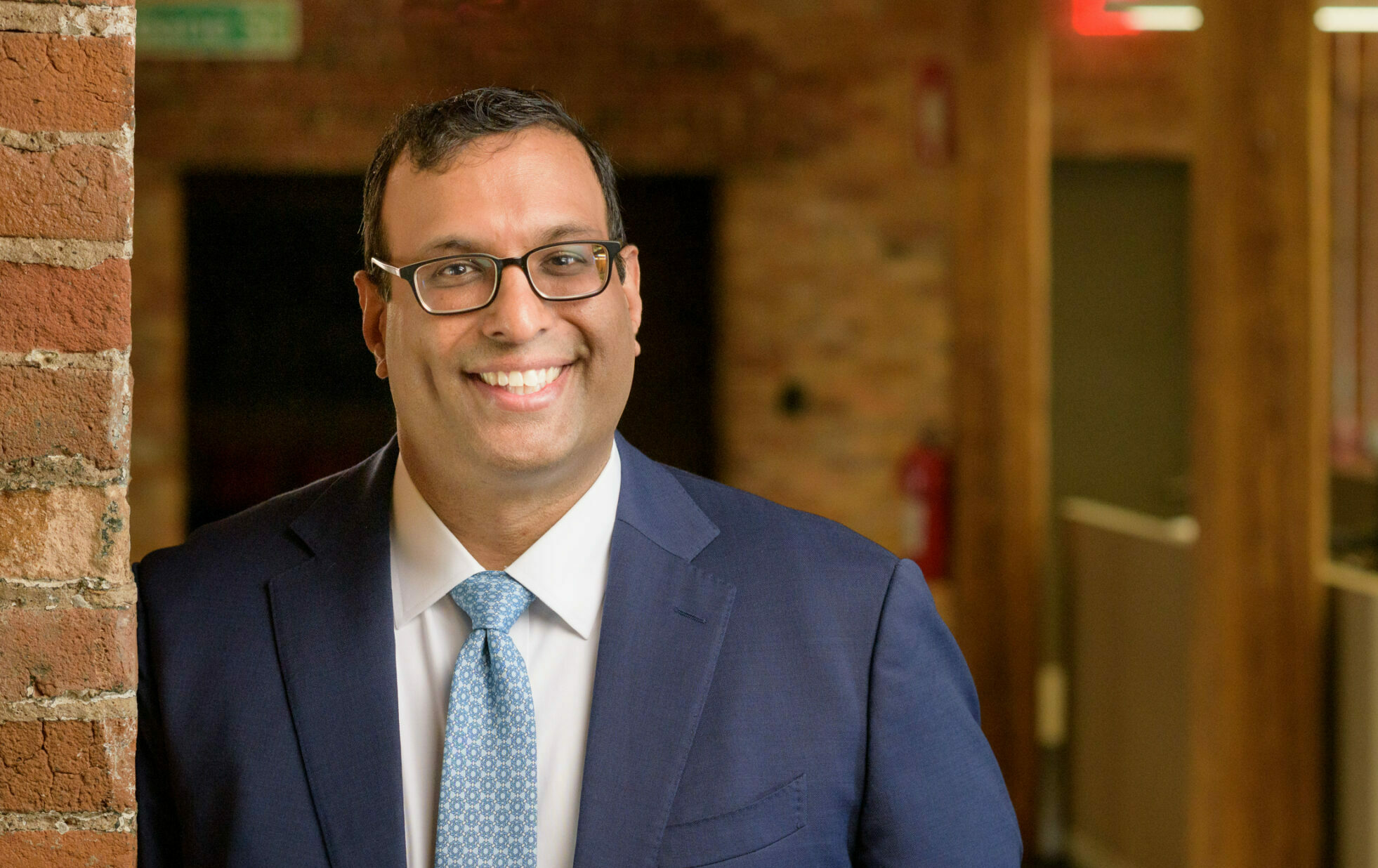We know what will be needed to succeed in the decade ahead, says Jacob Morgan. Leaders have to be ready.
What will it take to succeed in the next decade? Leadership books crowd the shelves, but they’re all focused on what it takes to be a good leader today. What about the future?
To answer that question, I set out to create a forward-thinking book that can prepare tomorrow’s leaders for success in the ever-changing world of work. In doing that, I interviewed more than 140 top chief executives and partnered with LinkedIn to survey 14,000 employees around the world. Those conversations led to my book, The Future Leader, and helped me create what I call the Notable Nine: the four mindsets and five skills that all leaders need to develop to be successful in the next decade and beyond. These nine areas are crucial for future success, but, as my research revealed, there is plenty of room for improvement among today’s leaders.
4 mindsets for future leaders
The Explorer
Just like explorers of old who ventured to new lands, future leaders need to bring their employees and organizations to the uncharted future. Explorers are curious, open to new ideas, and agile enough to change directions when their original plan hits a roadblock. This mindset forces the pursuit of new ideas, products, services, and methods of doing things. It also means becoming a perpetual learner.
Jo Ann Jenkins, chief executive of the non-profit group AARP, told me: “Future leaders must instill a learning culture in their organizations. Organizations that are not continually learning and adapting will lose their competitive edge and ultimately won’t survive. For future leaders, this type of perpetual learning is as essential as air and water.”
Thinking like an Explorer means having the growth mindset, realizing that where you are now isn’t where you’ll always be. People with the growth mindset see challenges as opportunities to learn and progress.
The Chef
Great chefs are experts at balancing ingredients to create perfectly flavored dishes. Similarly, leaders of the future need to balance the two most important ingredients in any business: humanity and technology. Together, they create what I call HumanIT.
The human side of work is all of the issues relating to people. This is where things like employee experience, relationships, loyal customers and social impact come from. The other ingredient is technology, which includes all aspects of how work gets done, including software, devices and automation. This is where things like efficiency, productivity, speed and decision-making take place. Companies need both aspects working in tandem to be successful.
Adopting the mindset of the Chef means embracing and leveraging technology to make the organization more human, such as by automating mundane tasks to give employees more time to focus on the human aspects of the business.
The Servant
For decades, leaders gave instructions from the top of hierarchical pyramids. Successful future leaders will be on the ground working with their employees in the trenches and lifting their people up. The mindset of the Servant manifests in four ways, including service to your leaders and building strong relationships with the people above you. It means making their lives easier, working in a partnership, and realizing that they are human just like you. Service to your team is supporting the people around you to make them more successful than you. Leaders with this mindset recognize their employees’ work and make them feel valued and engaged.
Service to your customers comes from developing a strong customer experience and putting the customer at the center of every decision the company makes. Service to yourself is often overlooked. Before you can take care of other people and guide your company, you have to put yourself in a place to succeed and practicee self-care.
The Global Citizen
As the world becomes more connected, every company becomes a global company with the potential for customers and employees around the globe. To succeed in the future, leaders must adopt the mindset of the global citizen. It comes down to this: could you still lead effectively if you were plucked from your current situation and placed in a new country, culture, or department?
“Being a global citizen is not automatically about living in different countries or traveling all the time. It’s about having a global mindset. You have to be open to other people and ideas and to respect the diversity of cultures, religions, ethnicities, races, thoughts, and orientations,” said Ilham Kadri, chief executive of chemicals firm Solvay, in our interview.
To develop this mindset, leaders need to be comfortable with other cultures. They need to actively seek out diverse teams, listen to differing perspectives, and realize the global impact of their decisions.
How well are we practicing these mindsets today?
These four mindsets are how leaders must think in the next decade and beyond. My survey of 14,000 employees examined how well leaders and employees are practicing them today. The results were somewhat surprising. Most employees think they are doing a pretty good job with these mindsets, with 69% replying that they practice the mindsets ‘reasonably well’ or ‘very well.’ However, when employees were asked about how well their managers and leaders practice these mindsets, 60% put their leaders in the categories of ‘not well at all’ or merely ‘somewhat well.’
The biggest takeaway from this data is that today’s leaders think they are doing a much better job with these mindsets than they actually are. Only 39% of individual contributors give their managers those positive ‘very well’ or ‘reasonably well’ ratings.
When it comes to our impact on others, perception is reality: even if leaders think they are doing a great job, the reality is that they aren’t, because their employees don’t think they are. Around the world, 57% of all managers and 58% of senior executives scored in the bottom two categories. Only 6% of managers and 9% of senior executives are practicing these mindsets very well. There is plenty of room for improvement from today’s leaders to prepare for the future.
5 skills for future leaders
The Futurist
Futurists can’t predict the future, but they can look at various possibilities to prepare themselves and their organizations for what is coming down the pipeline. Futurists don’t just react to trends; they proactively shape the future and lead change. Futurists look through the ‘cone of possibilities’ to run through various scenarios to see potential outcomes. They keep an eye on trends, including looking towards the horizon for signs of things to come.
World Fuel Services chief executive Michael Kasbar told me this: “For leaders of the future, it’s not about picking a single path and sticking to it; it’s about exploring many paths at the same time, seeing around many corners to understand the best way forward.” That’s the skill of the Futurist in a nutshell: considering various possibilities, being open to change, and looking towards the future.
Yoda
Just like everyone’s favorite green Jedi in Star Wars, leaders of the future must develop emotional intelligence, including empathy and self-awareness. These softer skills were long looked down on for leaders, but they are crucial in strengthening relationships and leading effectively. Empathy is the ability to see things from someone else’s perspectives: for future leaders, this means considering issues from an employee’s or customer’s point of view.
Future leaders must also be self-aware. They need to be mindful of their own emotions, motives and desires. The majority of people think they are self-aware, but research has found that very few people actually are.
Self-awareness is both internal and external. You must be aware of your own strengths and weaknesses, and you also need to be aware of how you are viewed by other people.
The Translator
The skill of the Translator is all about communication and building bridges between people. Communicating well in the future means being able to share a persuasive message clearly and concisely. One of the most important aspects of future communication will be using the right channel. Leaders must know how to cut through the noise to communicate in a way that gets people’s attention and moves them to action.
The other side of the Translator is listening. Listening is more than just hearing; it means internalizing and really paying attention to what is being said. Future leaders need to listen deliberately and keep many ears to many different grounds in order to hear everything that is going on around them.
The Coach
Future leaders must be great coaches, which means knowing how to motivate, engage and inspire people, how to create other leaders, to work across generations and cultures, and how to put together effective teams. Creating future leaders is one of the main goals of a coach, and it comes from developing employees to be more successful than you. That mindset guides the actions you take and behaviors you exhibit. It motivates future leaders to create programs to mentor their employees, develop them personally and professionally, and set them up for future success.
Future leaders will face the unique challenge of leading a multi-generational workforce, which means working across generations and cultures to understand and respect the unique needs of each group. To create effective teams, leaders must play to the strengths of each person and create an environment where teams can collaborate and succeed.
The Technology Teenager
Future leaders must be like teenagers. They don’t need to be expert coders or programmers, but they do need a strong understanding of technology and how to use it. Teens don’t typically read the instruction manual: they just dive in and try new technology. Future leaders should take the same approach, surrounding themselves with technology to find the best applications for their organizations.
Michael Tipsord, chief executive of the insurance company State Farm, put it like this: “Tomorrow’s leaders will need to have a technology fluency that lets them anticipate opportunities and threats, distinguish hype from credible, and embrace transformative possibilities.”
Future leaders need to understand the technology landscape. Keeping an eye on new developments and how they will impact your business creates a technology-driven, forward-thinking company.
How well are we practicing these skills today?
My survey of 14,000 global employees also assessed how far leaders are practicing these skills today. The results were similar to those on mindset, with people thinking they are doing well, but that their managers aren’t. Only 8% said that their managers and senior executives are practicing these skills ‘very well.’ Sixty per cent of employees put their managers in the bottom two categories; 62% did the same for senior executives. Across the board, the lowest scores for leaders were on practicing emotional intelligence. There are clear gaps between what managers and executives think they are doing and where employees see them. Just like the mindsets, there is clear room for improvement on these critical five skills if leaders are to make sure that they are future-ready.
The world is changing rapidly and the future of work will be here before we know it. These four mindsets and five skills outline the path to success. To be effective in the future, leaders must follow that path and prepare now.




